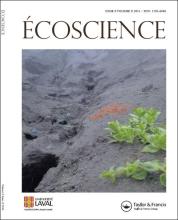Resource information
Increasingly, social capital, defined as shared norms, trust, and the horizontal and vertical social networks that facilitate coordination and cooperation for mutually beneficial collective action, is seen as an important asset upon which people rely to manage natural resources and resolve conflicts. This paper uses empirical data from households and community surveys and case studies, to examine the role, strengths, and limits of social capital in managing conflicts over the use and management of natural resources. We inventoried over 700 cases ranging from conflicts between multiple resource users to supracommunity conflicts between local communities concerns for better livelihoods and national/international concerns for environment conservation. Results show how different types of social capital are used in preventing and managing conflicts. Endowment in certain dimensions of social capital significantly decreased the occurrence of conflicts and played a significant role in managing them. However, social capital mechanisms have some limits, and are not always effective in resolving some types of conflicts. For such conflicts, people rely on formal mechanisms for arbitration and adjudication. In many cases, these have resulted in exclusion, coercion, and violence. Results show that policies or social capital alone do not possess the resources needed to promote broad-based and sustainable conflict resolution strategies. Rather, people use a range of conflict management strategies of different types and combinations of social capital and local polices. This synergy between social capital and local policy is based on complementarity and embededness: mutually supportive relations between local government and local communities, and the nature and extent of the ties connecting people and communities and public institutions. Better understanding of how this synergy between social capital and local policy can be strengthened is crucial to minimize natural resource management conflicts.



